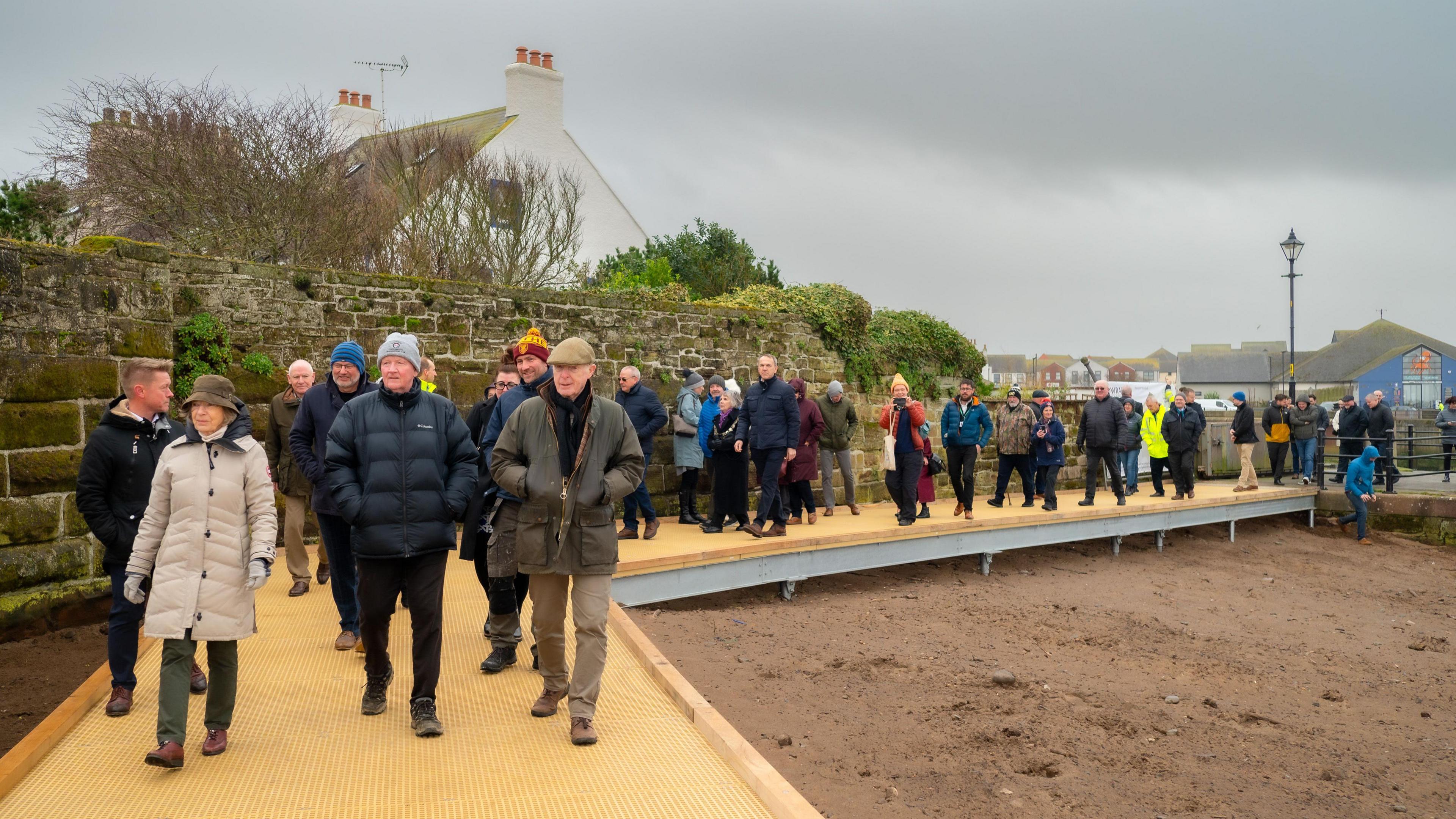Disabled access: 'Some places are just a no go'
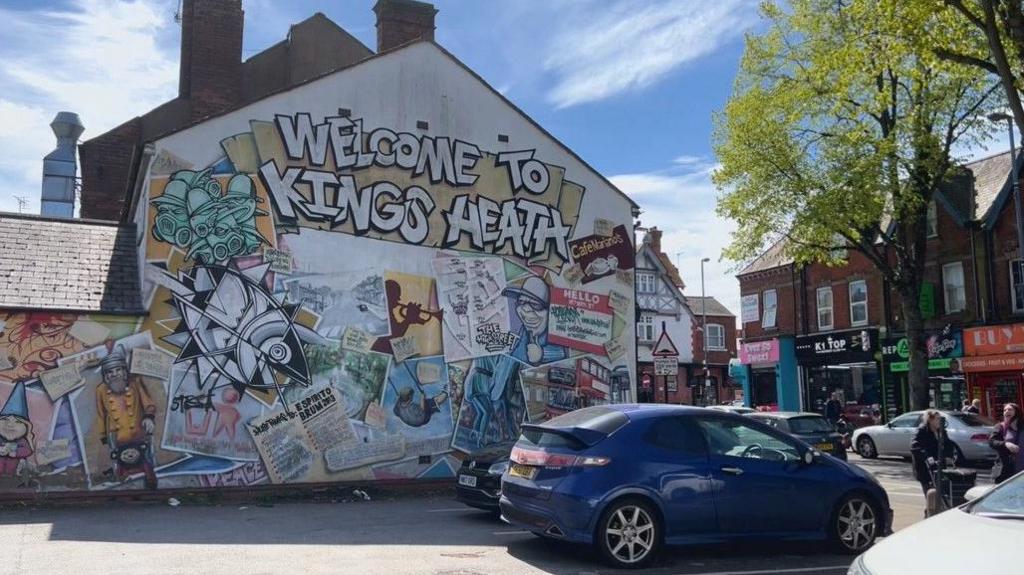
About half of businesses on or near Kings Heath high street were not wheelchair accessible
- Published
A project to help remove barriers for disabled people on a high street found about half of shops and other businesses were not accessible to wheelchair users.
The survey, commissioned by community interest company Our Scene, found this applied to 49% of 273 businesses on or near Kings Heath high street in Birmingham.
The group is now working with retailers to help them to make small adjustments.
The UK Disability Survey, external in 2021 discovered 31% of respondents had difficulty accessing public spaces all of the time or often. Of those, 78% found it impossible or difficult to access shops.
Victoria Townsend from the project team uses a wheelchair. She said: "There are places that are just a no go."
The mother-of-two added: "It's really frustrating. I've gone out of my way to prove that disability isn't a stoppage in life and it feels like there are barriers put in your way."
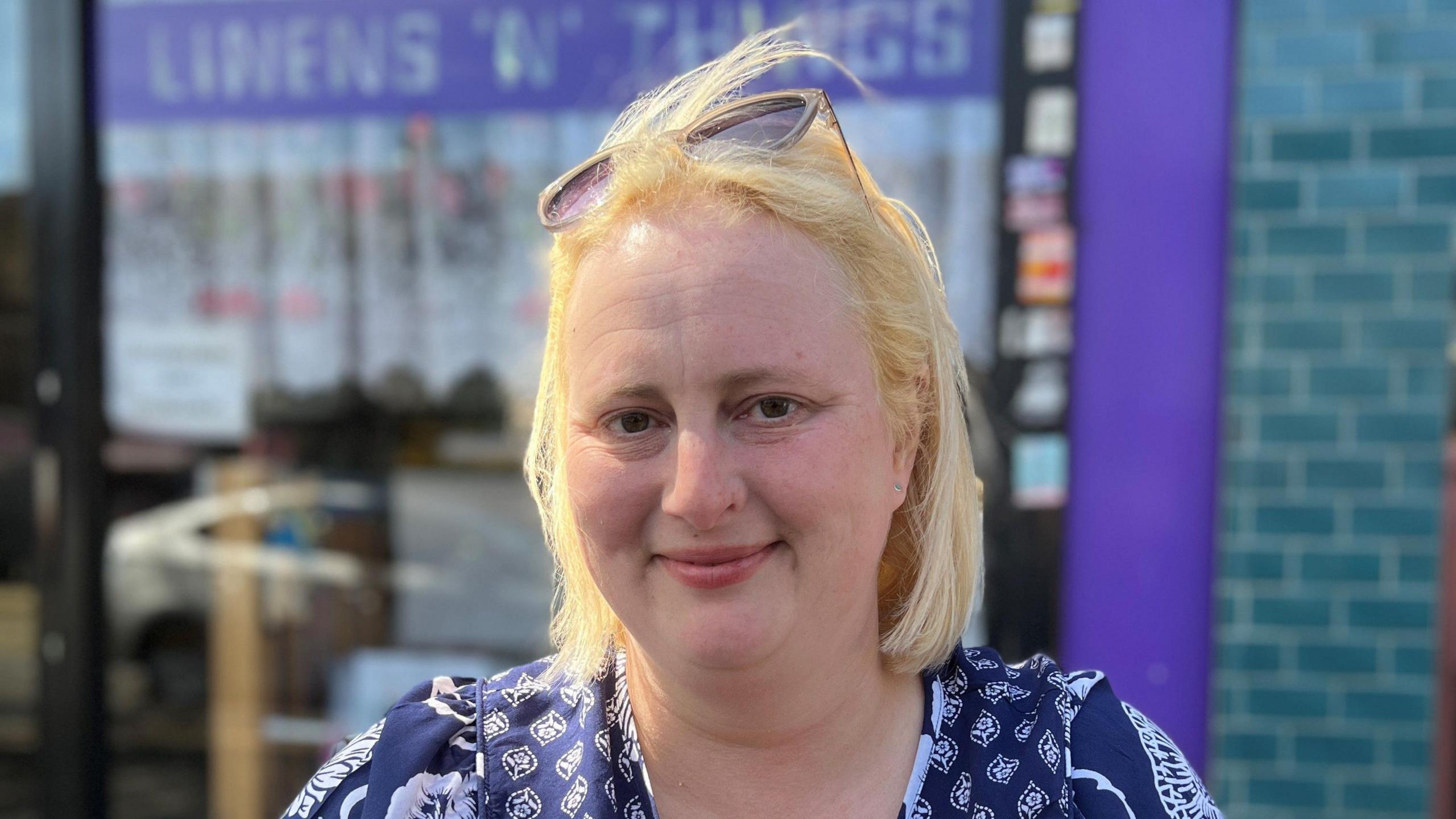
Victoria Townsend said improving disabled access was a "no brainer"
A podiatry clinic, Feet First Foot Care, installed a £100 hearing loop to help deaf people and those with hearing impairments.
Assistant practice manager Teresa Farmer said it made an instant impact.
"Within 24 hours, a young lady who is deaf and has Down's syndrome came in. She turned on her hearing loop and she heard me for the first time. She was squealing with excitement. I was crying."
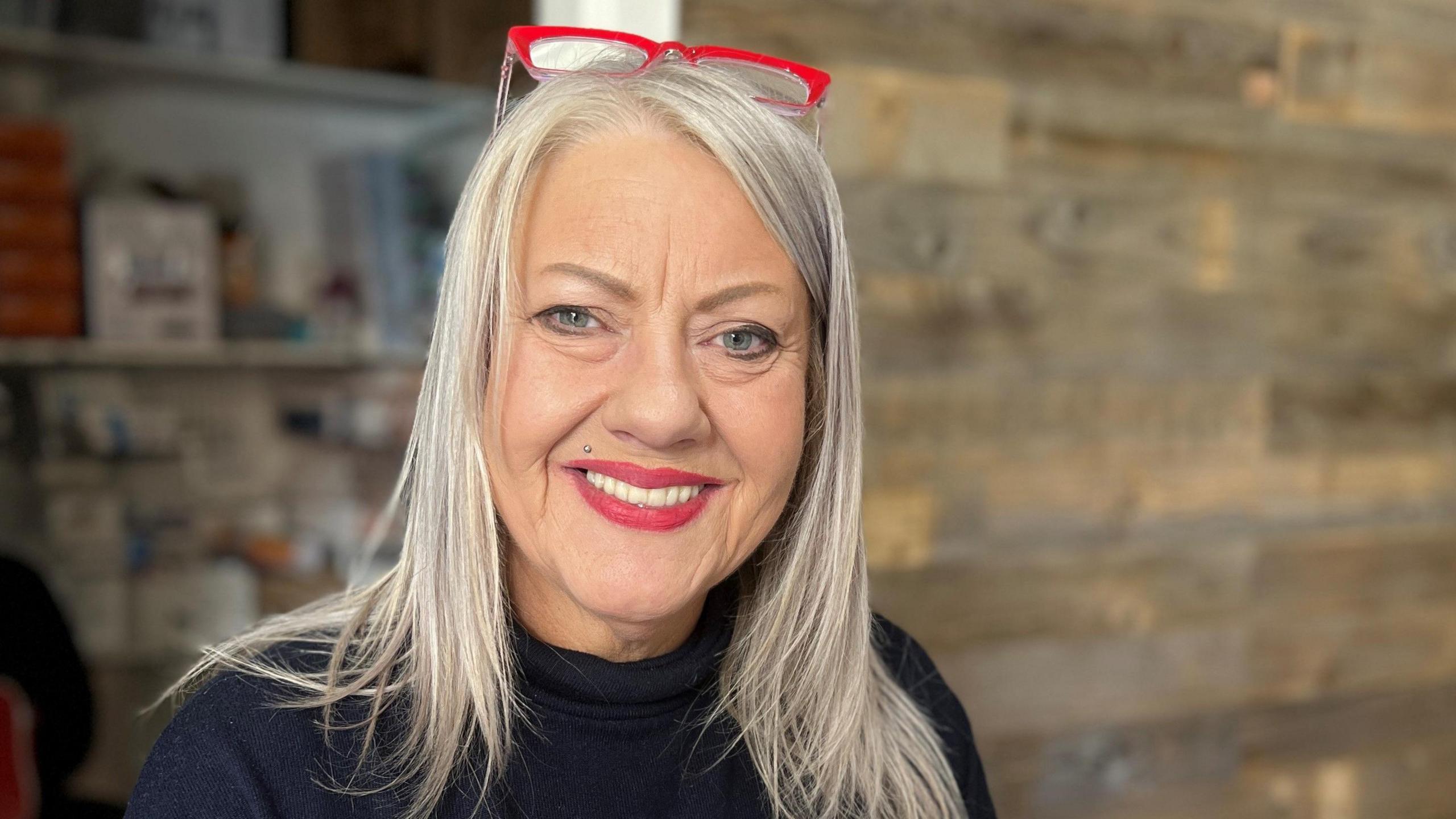
Teresa Farmer said a hearing loop had an instant impact for customers
Debbie Ireson cares for her husband and mother, both of whom use wheelchairs and hearing aids.
She was shocked to learn only 6% of businesses in Kings Heath had a hearing loop.
"For my mother who's 92, it's all too much. She can't hear me speak to her, let alone the person behind the counter. But with a hearing loop, it gets rid of all that background noise."
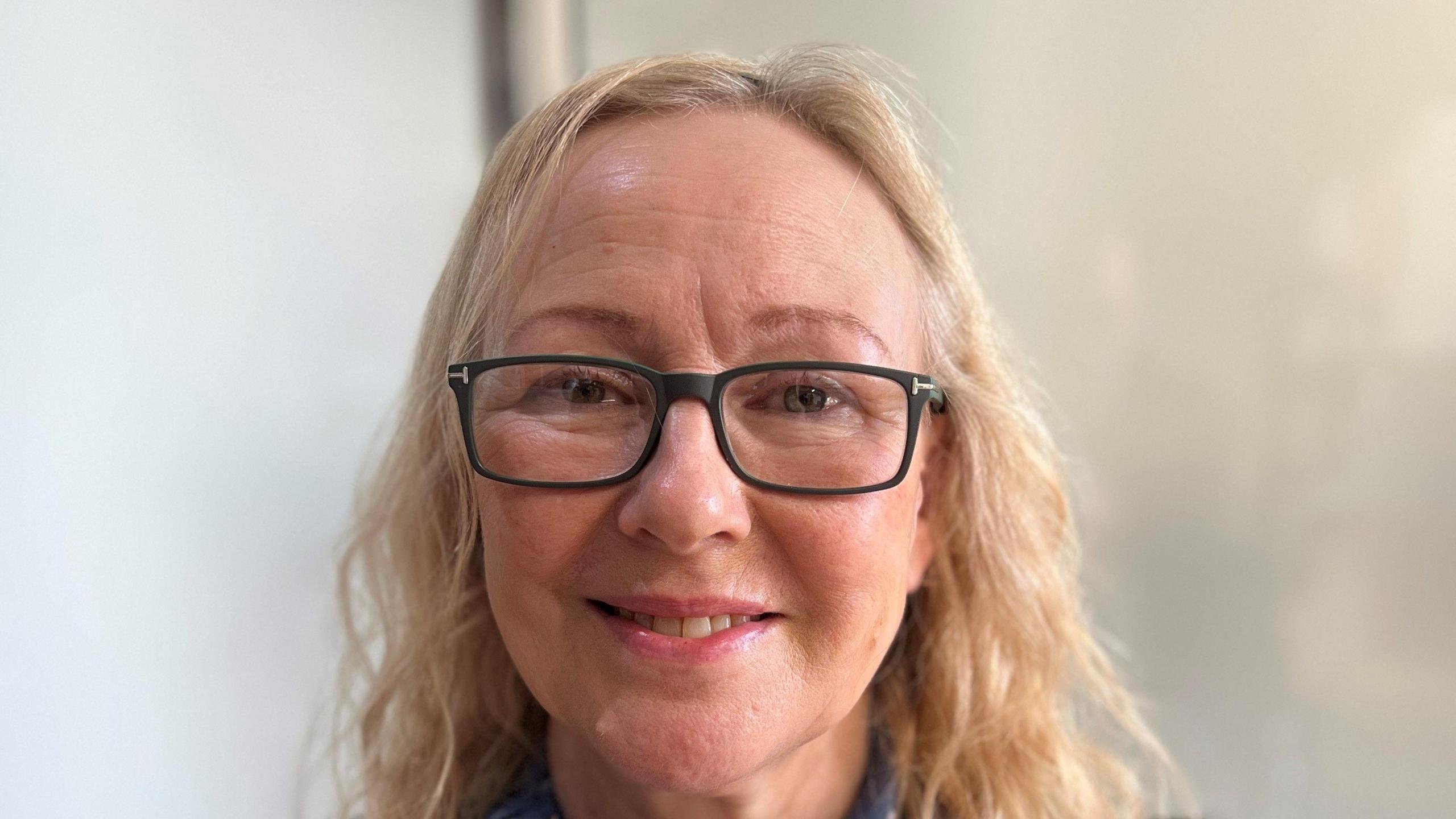
Debbie Ireson's 92 year old mother uses a wheelchair and a hearing aid
The project aims to highlight the missed economic opportunity for businesses that have not made reasonable adjustments for disabled shoppers, whose spending power is estimated to be worth £267m a year to high-street shops alone.
Victoria Barr lives with the muscle-wasting condition limb girdle muscular dystrophy and uses a wheelchair.
She said: "Small changes can have a big impact on people's lives, not just for wheelchair users, but people with pushchairs and older people too. And it doesn't cost much."
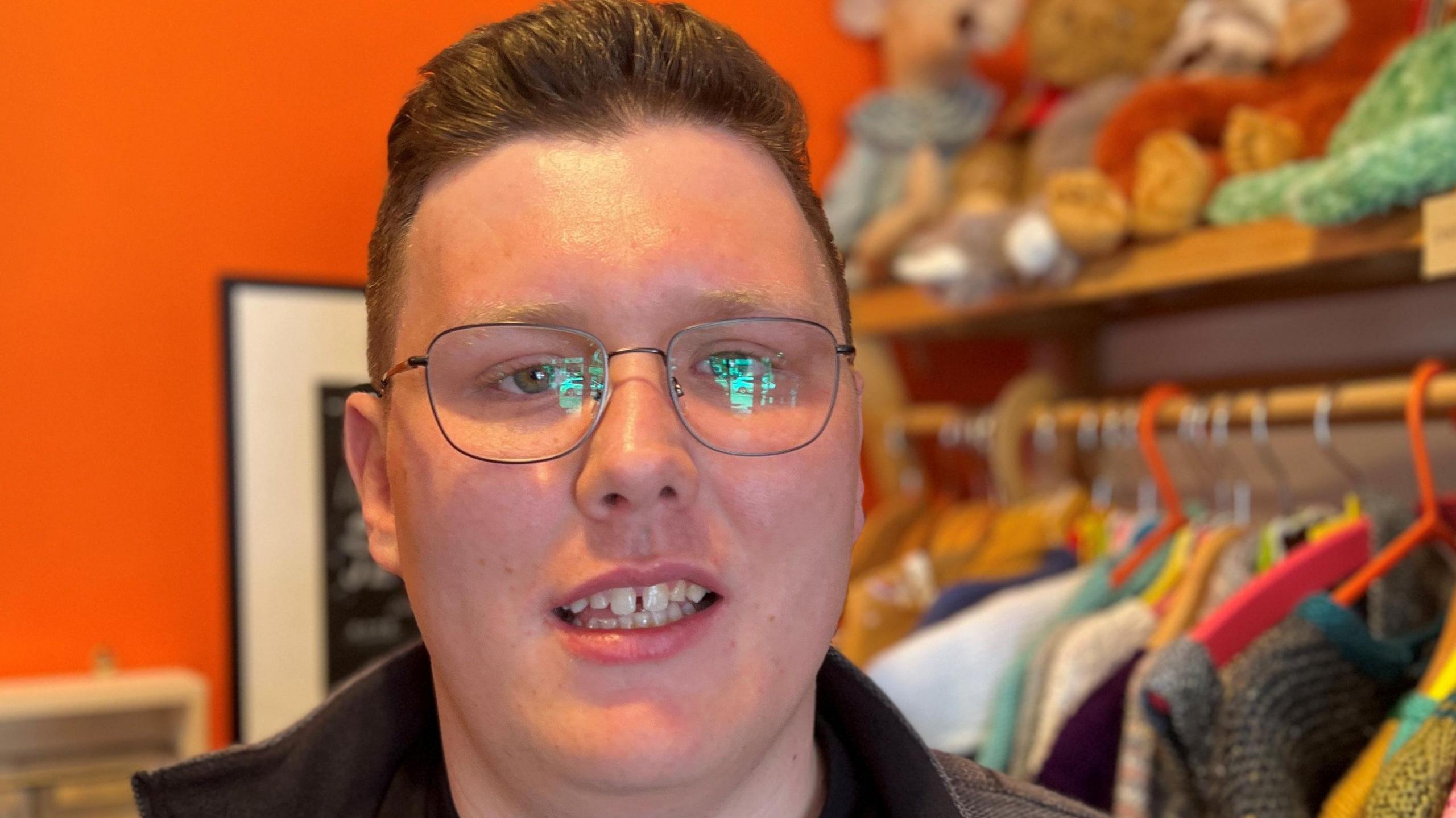
Thomas Sennett wants to improve shopping for those with hidden disabilities
Our Scene has put together a booklet and training film to help businesses make adjustments, such as purchasing portable ramps, having lower serving counters and installing hearing loops.
It includes advice to help those with hidden disabilities and neurodiverse conditions.
Thomas Sennett, 25, who has autism, said: "It can be very bright in shops and there might be too much loud music. It can be very overstimulating."
The project was funded by the government's UK Shared Prosperity Fund.
A government spokesperson said: "Our Disability Action Plan and the National Disability Strategy set out practical actions to deliver the government’s long-term vision of making the UK the most accessible place in the world to live.
"These include local funding to support projects that increase high street accessibility."
Follow BBC West Midlands on Facebook, external, X,, external and Instagram, external, Send your story ideas to: newsonline.westmidlands@bbc.co.uk, external
Related topics
- Published9 April 2024
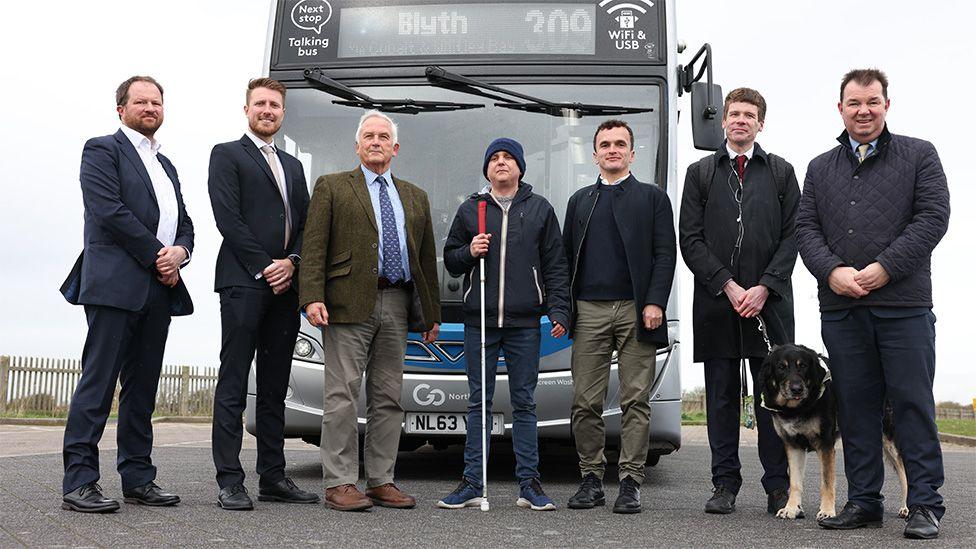
- Published25 March 2024

- Published5 March 2024

- Published6 February 2024
